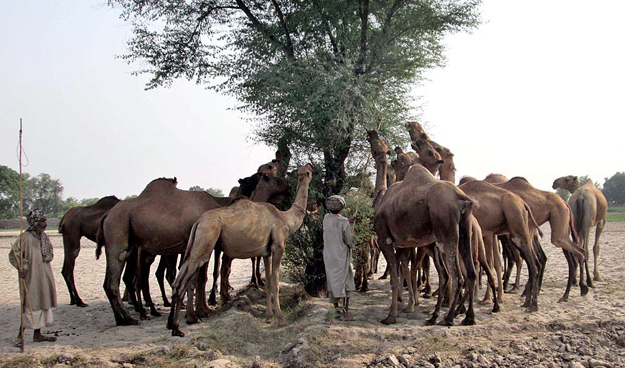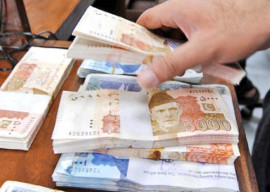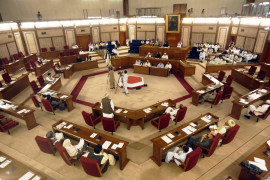
Ali Nawaz, 30, is a camel herder hailing from Sibi. He has parked his animals at the Eid cattle market established at the Eastern Bypass on the outskirts of Quetta. He hopes to sell them before Eidul Azha starts on Friday and animals are sacrificed.
“I brought five camels from Sibi, of which two have been sold, while three remain,” Nawaz said, adding that the daily upkeep of a single camel is more than Rs1,200.

For people like Nawaz, selling their animals ahead of Eidul Azha is their only way of earning cash. Having reared the camel for a year, he not only has to recover the expenses incurred but also earn a profit which will last him till next Eid.
Read: Karachi's administration gears up to clean the city on Eidul Azha
“A lot of people come to purchase animals, but few can afford them,” Nawaz said, adding that “somehow everything is expensive, and it is difficult for us to sell the animals on cheaper rates.”
“Travel expenses are quite high, that’s why I haven’t brought more camels [to sell],” explains Nawaz.
But if an animal is not sold, taking them back home is not really an option.
”I am happy if the animals are sold, but I am sad if I have to take them back because that means I will suffer a loss and will have to bear all the expenses incurred in rearing them,” the young camel herder adds.
Meanwhile, the director general for Balochistan Livestock Department Ghulam Hussain Jaffer said that they were working on two projects for camels and camel herders in the province.
Read: Shopping for Eidul Azha a sacrifice in itself
The projects, in Musakhel and Washuk, will help boost local production of camel milk in the province. It will cost an estimated Rs50 million, and is expected to take three years to complete.
Published in The Express Tribune, September 23rd, 2015.

















COMMENTS (2)
Comments are moderated and generally will be posted if they are on-topic and not abusive.
For more information, please see our Comments FAQ